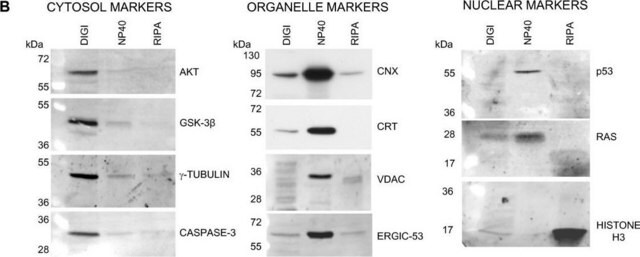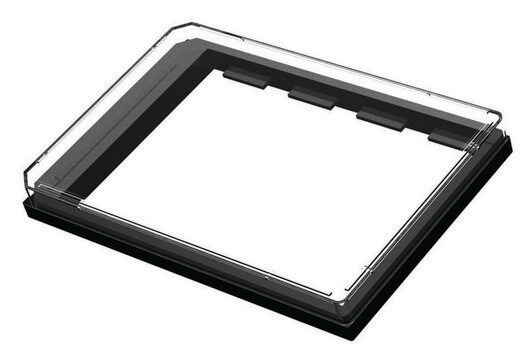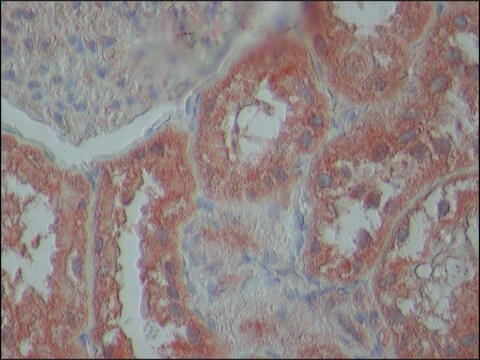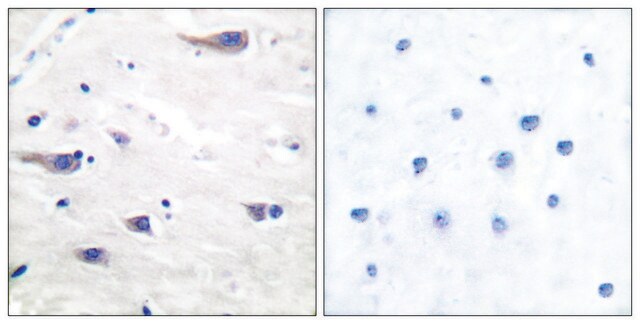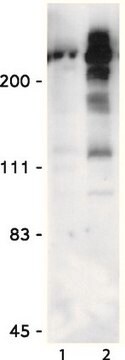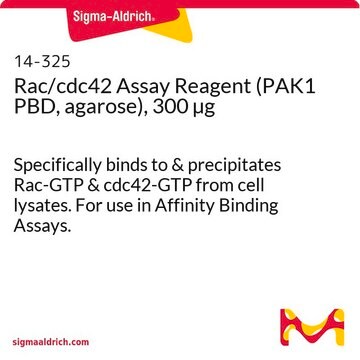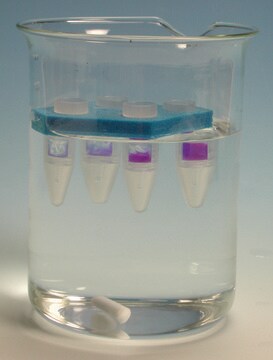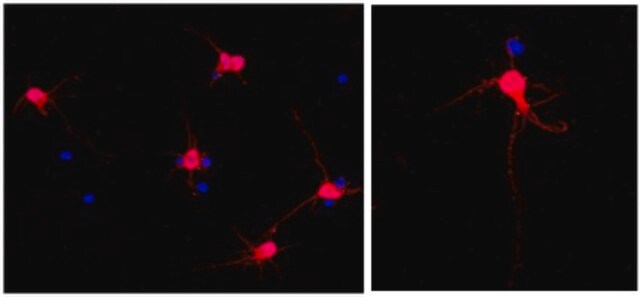MABS195
Anti-Pan-Ras Antibody, clone RAS 10
clone RAS 10, from mouse
Synonym(s):
GTPase Kras, K-Ras 2, Ki-Ras, c-K-ras, c-Ki-ras, GTPase Kras, N-terminally processed
About This Item
WB
western blot: suitable
Recommended Products
biological source
mouse
Quality Level
antibody form
purified immunoglobulin
antibody product type
primary antibodies
clone
RAS 10, monoclonal
species reactivity
human
technique(s)
immunocytochemistry: suitable
western blot: suitable
isotype
IgG2aκ
NCBI accession no.
UniProt accession no.
shipped in
wet ice
target post-translational modification
unmodified
Gene Information
human ... KRAS(3845)
General description
Immunogen
Application
Signaling
Growth Factors & Receptors
Immunocytochemistry Analysis: A 1:500 dilution of this antibody detected Pan-Ras in A431 cells.
Immunoprecipitation Analysis: A representative lot from an independent laboratory immunoprecipitated Pan-Ras in IP (Hamer, P.J., et al. (1990). Hybridoma. 9(6):573-587.).
Quality
Western Blot Analysis: 1 µg/mL of this antibody detected Pan-Ras in 10 µg of MCF7 cell lysate.
Target description
Physical form
Storage and Stability
Analysis Note
MCF7 cell lysate
Other Notes
Disclaimer
Not finding the right product?
Try our Product Selector Tool.
recommended
Storage Class Code
12 - Non Combustible Liquids
WGK
WGK 1
Flash Point(F)
Not applicable
Flash Point(C)
Not applicable
Certificates of Analysis (COA)
Search for Certificates of Analysis (COA) by entering the products Lot/Batch Number. Lot and Batch Numbers can be found on a product’s label following the words ‘Lot’ or ‘Batch’.
Already Own This Product?
Find documentation for the products that you have recently purchased in the Document Library.
Our team of scientists has experience in all areas of research including Life Science, Material Science, Chemical Synthesis, Chromatography, Analytical and many others.
Contact Technical Service